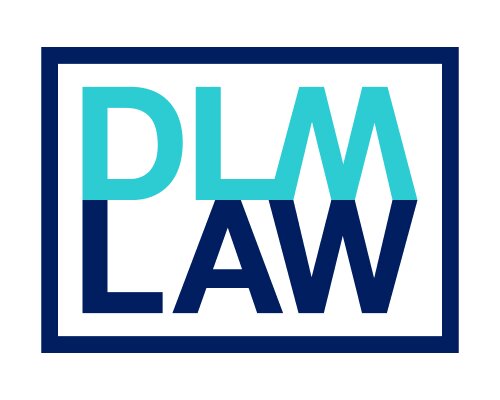Best Patent Lawyers in United States
Share your needs with us, get contacted by law firms.
Free. Takes 2 min.
Or refine your search by selecting a city:
List of the best lawyers in United States
About Patent Law in United States
Patent law in the United States is designed to protect the rights of inventors by granting them exclusive rights to their inventions for a limited period. This protection encourages innovation by ensuring inventors can benefit from their inventions without the fear of having their ideas copied and exploited without their permission. The United States Patent and Trademark Office (USPTO) is the federal agency responsible for reviewing patent applications and granting patents. There are three main types of patents in the United States: utility patents, design patents, and plant patents. Each type covers different aspects of inventions, ranging from functional inventions to ornamental designs and new plant varieties.
Why You May Need a Lawyer
Seeking legal assistance in the field of patents is essential for several reasons. One common situation is during the patent application process, which can be complex and involves strict legal requirements. A patent lawyer can help ensure your application is properly prepared and submitted. Legal help may also be necessary when dealing with patent infringements, whether you're enforcing your rights against unauthorized use or defending against claims of infringement. Additionally, if you're buying or selling a company that holds patents or involved in licensing agreements, expert legal advice can help navigate these transactions. Sometimes, individuals or companies need legal guidance to assess the patentability of their inventions before investing time and resources into development.
Local Laws Overview
The United States patent law is governed by Title 35 of the United States Code and the provisions of the America Invents Act (AIA), which introduced significant changes such as the transition from a "first to invent" to a "first inventor to file" system. This system encourages early filing by the inventor. Key aspects include the requirement for novelty, non-obviousness, and usefulness of an invention. The process includes filing a patent application with the USPTO, which involves stringent documentation and fees. The law also outlines the duration of patent protection, generally 20 years from the filing date for utility and plant patents, and 15 years from the grant date for design patents. Understanding these laws is crucial to effectively navigating the patent landscape.
Frequently Asked Questions
What is a patent?
A patent is a legal right granted by the government that gives an inventor exclusive rights to their invention, preventing others from making, using, selling, or distributing the invention without permission for a limited time.
How long does it take to get a patent?
The time to obtain a patent can vary widely but typically takes 1 to 3 years from the date of filing, depending on the complexity of the invention and the current workload of the USPTO.
What can be patented?
To be patentable, an invention must be novel, non-obvious, and useful. It can include processes, machines, compositions of matter, and improvements to existing technologies, among others.
Can software be patented?
Yes, software can be patented in the U.S. if it meets the requirements for patentability, including being tied to a new and useful process or machine.
How do I enforce my patent rights?
If someone infringes on your patented invention, you may need to file a lawsuit in federal court to enforce your rights. A patent attorney can assist with this complex process.
What is the difference between patents and copyrights?
Patents protect inventions, while copyrights protect original works of authorship, such as literature, music, and art. Each type of protection serves different purposes.
How much does it cost to get a patent?
Costs can vary significantly, ranging from a few thousand to tens of thousands of dollars, depending on the complexity of the application and attorney fees. USPTO fees are also required.
What happens if I don’t file for a patent?
If you don't file for a patent, you risk others copying your invention without any legal recourse. You may also lose the opportunity to license or sell your invention exclusively.
Can I file a patent application on my own?
While it is possible to file a patent application on your own, known as "pro se," it is highly recommended to seek the assistance of a patent attorney to navigate the complex process and ensure all requirements are met.
Are patents valid internationally?
No, patents are territorial, meaning a U.S. patent only offers protection within the United States. To protect an invention in other countries, you must file for patents in each respective jurisdiction.
Additional Resources
Several resources can aid individuals seeking legal advice about patents:
- The United States Patent and Trademark Office (USPTO) provides educational resources and updates on patent law.
- The World Intellectual Property Organization (WIPO) offers insights into international patent protection.
- Inventors and Entrepreneurs Association groups are locally available for networking and guidance.
- Legal clinics at universities may provide pro bono patent services or advice.
Next Steps
If you require legal assistance in the field of patents, consider consulting with a qualified patent attorney. Begin by conducting research to find attorneys or firms specializing in intellectual property and patents. Schedule consultations to discuss your needs and evaluate your options. Take advantage of directories such as the American Bar Association or local bar associations to find licensed lawyers with strong backgrounds in patent law. It's crucial to be prepared with detailed information about your invention or situation to ensure a productive consultation and to explore all possible options for protecting or defending your invention.
Lawzana helps you find the best lawyers and law firms in United States through a curated and pre-screened list of qualified legal professionals. Our platform offers rankings and detailed profiles of attorneys and law firms, allowing you to compare based on practice areas, including Patent, experience, and client feedback.
Each profile includes a description of the firm's areas of practice, client reviews, team members and partners, year of establishment, spoken languages, office locations, contact information, social media presence, and any published articles or resources. Most firms on our platform speak English and are experienced in both local and international legal matters.
Get a quote from top-rated law firms in United States — quickly, securely, and without unnecessary hassle.
Disclaimer:
The information provided on this page is for general informational purposes only and does not constitute legal advice. While we strive to ensure the accuracy and relevance of the content, legal information may change over time, and interpretations of the law can vary. You should always consult with a qualified legal professional for advice specific to your situation.
We disclaim all liability for actions taken or not taken based on the content of this page. If you believe any information is incorrect or outdated, please contact us, and we will review and update it where appropriate.
Browse patent law firms by state in United States
Refine your search by selecting a state.

















